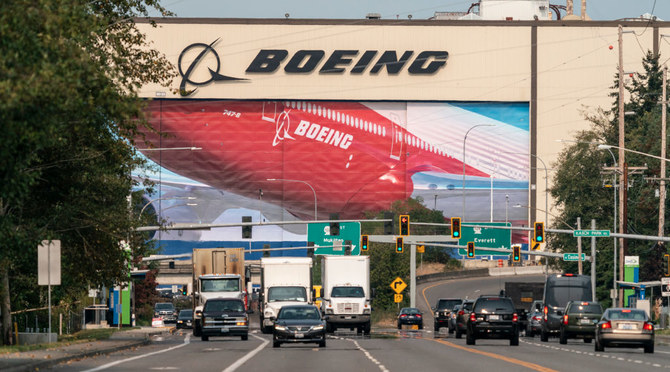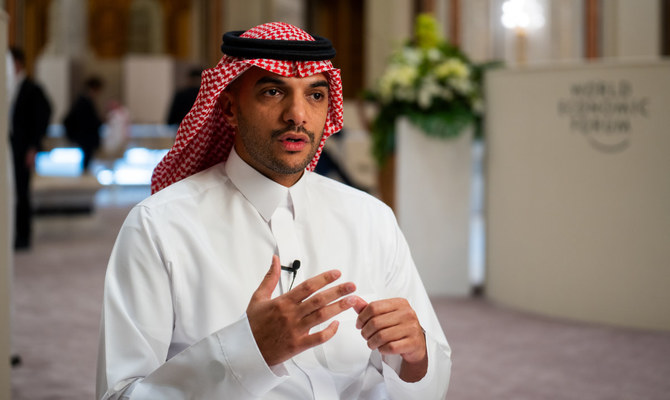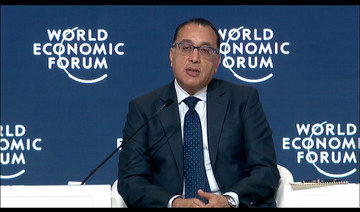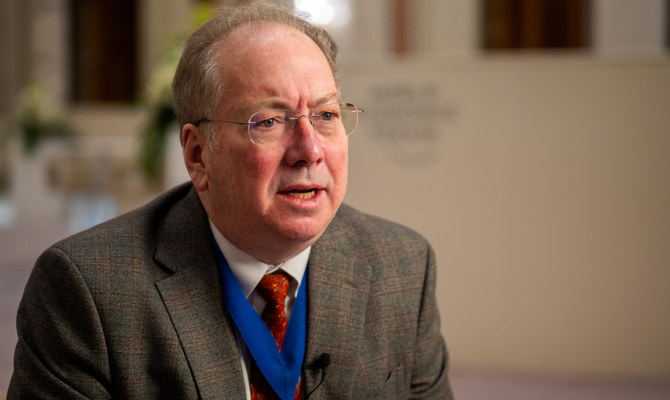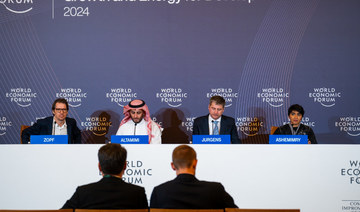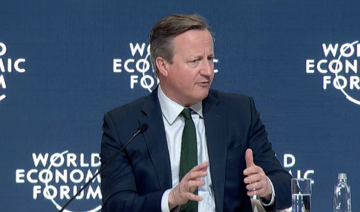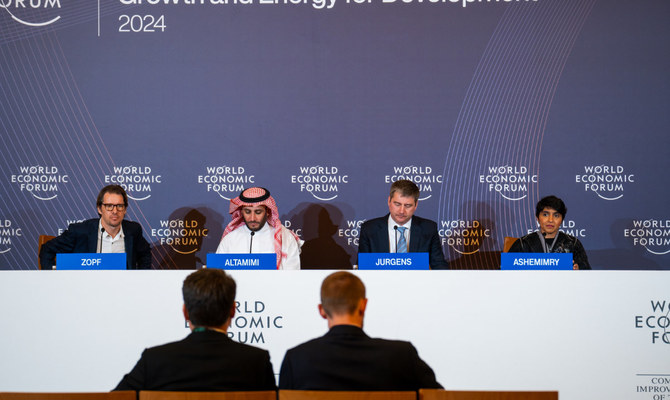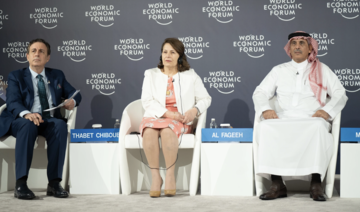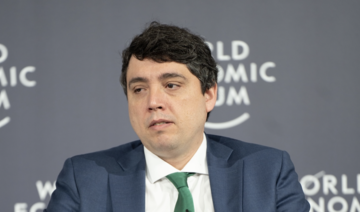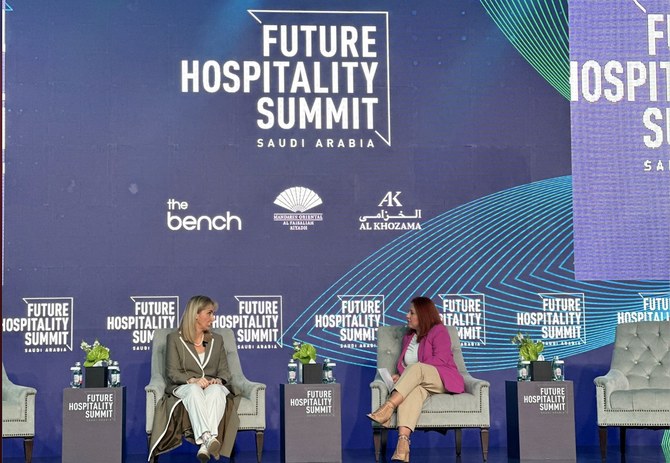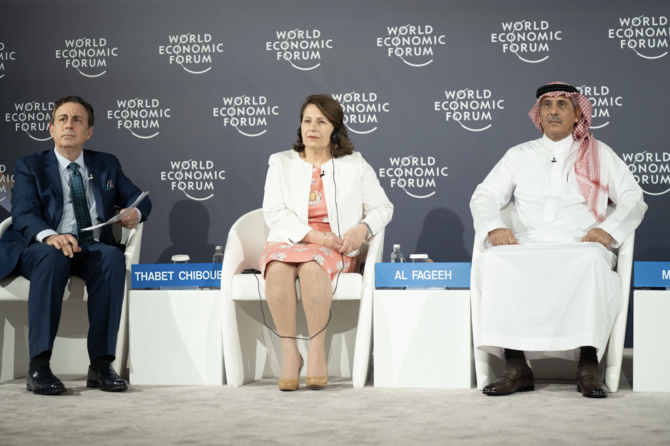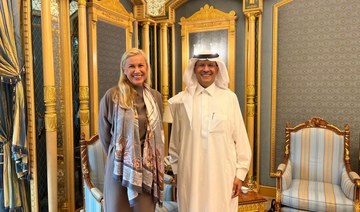RIYADH/LONDON: As US aircraft maker Boeing finishes celebrating the tenth anniversary of its landmark 787 Dreamliner, it now weighs up what the easing of the pandemic will mean for air travel across the Middle East and the rest of the world.
More sustainable aviation is a big focus of the company as more passengers are questioning their business travel requirements, and more of them are concerned about cutting emissions as many countries are racing this year to set their net zero carbon targets.
In the Middle East and Africa, the 171 787 Dreamliner aircraft, operated by 14 airlines, are already helping the region grow, while keeping the skies clean, Randy Heisey, Boeing managing director of commercial marketing for the Middle East and Africa told Arab News ahead of Dubai Air Show that starts next week.

The 787 has helped Middle East and African airlines open 74 new point-to-point routes to and from the region to date.
The Dreamliner has also helped airlines in the Middle East and Africa save 130 million barrels of fuel and related CO2 emissions, while reducing fuel use and emissions by 20 to 25 percent compared to airplanes they replace, he added.
The reduction in fuel use and emissions is even more substantial when the 787 replaces a four-engine passenger airplane such as the A380, A340 or 747.
It should be said that there is always the risk that compounded overall industry growth would negate such benefits however - something environmentalists pointed to before the pandemic impacted airlines so profoundly.
“Following a decade of above-trend traffic growth, Covid 19 has presented challenges never seen before in the aviation industry including many that remain today."
Randy Heisey, Boeing managing director of commercial marketing for the Middle East and Africa
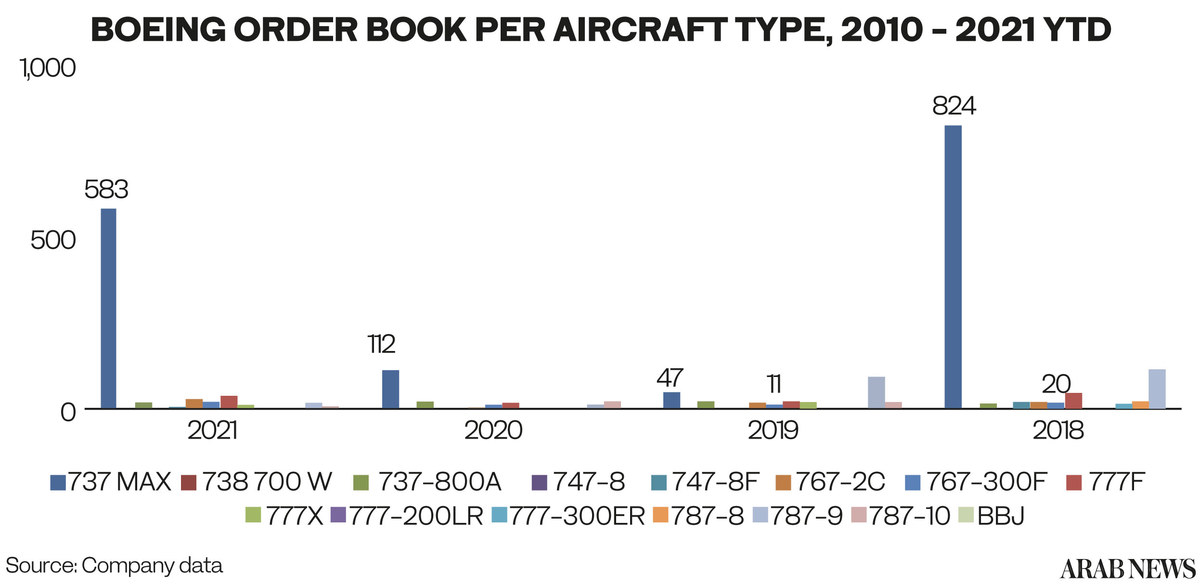
Net Zero Carbon
For its part, Boeing backs the airline industry commitment to hit net zero carbon emissions by 2050.
It has spent more than $60 billion over the last 10 years to improve its green operations on measures such as operational efficiencies, renewable energy and new technology.
These moves range from green hydrogen fuel development, to a joint venture with California firm Wisk, which has built a self-flying, all-electric air taxi that has made more than 1,500 flight tests.
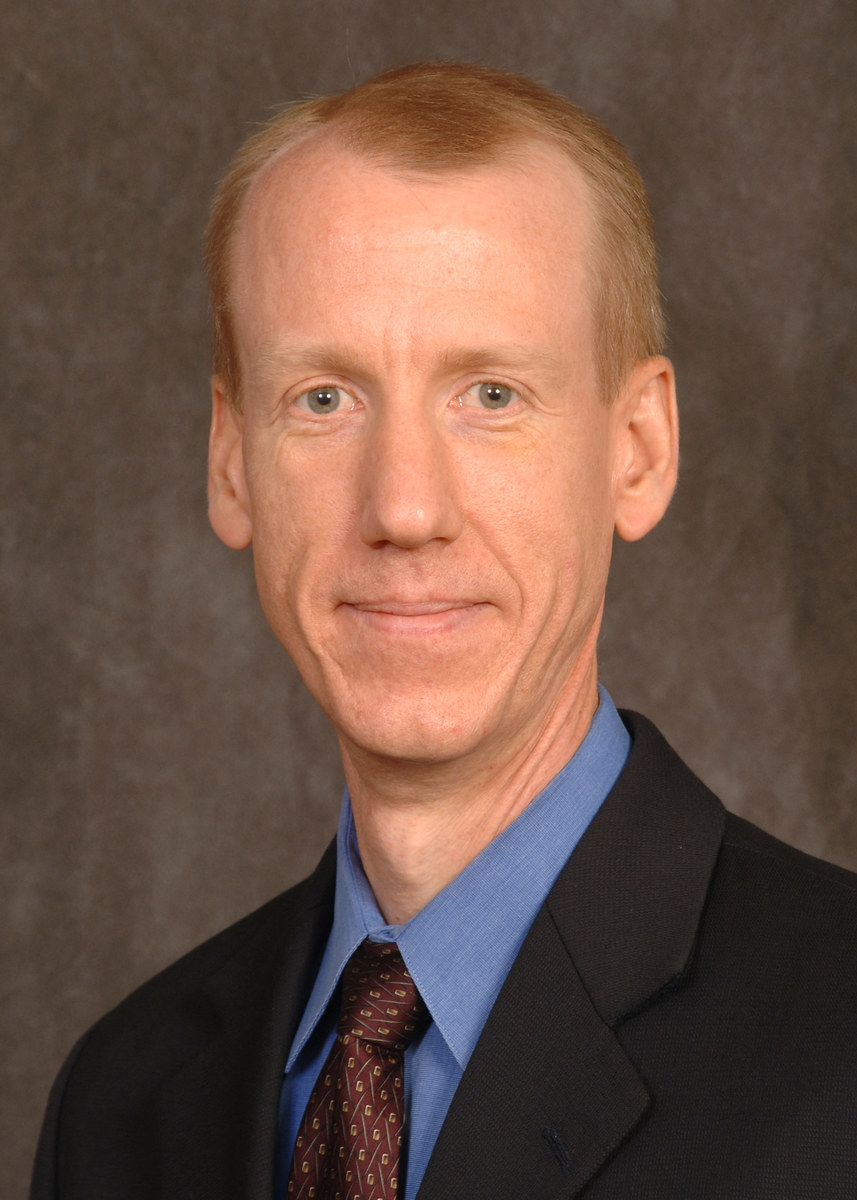
Randy Heisey, Boeing managing director of commercial marketing for the Middle East and Africa
Coming out of pandemic
Heisey is clear that Covid 19 restrictions that closed airports last year were measures the aviation industry had “never seen before”, but believes the sector is poised to get moving again.
He says: “Following a decade of above-trend traffic growth, Covid 19 has presented challenges never seen before in the aviation industry including many that remain today.
“While current market conditions remain dynamic, the past year has proven that when there is confidence in the health and safety in air travel, and when conditions allow governments to re-open borders, demand is resilient.”
Heisey adds: “Demand for domestic air travel is leading the recovery, with intra-regional markets expected to follow as health and travel restrictions ease, followed by long-haul travel’s return to pre-pandemic levels by 2023 to 2024.”
The plane maker’s head of marketing in the Middle East adds that airlines in the region have begun to recover towards pre-pandemic levels.
He adds that the number of flights to, from and within the region, has steadily increased to hit 69% of pre-pandemic levels, nearing the global average of 72%.
Heisey says: “Many airlines in the region remain in strong positions to capitalize on the recovery of international travel, leveraging the region’s position as key hubs between Europe and Asia.”
In May, flag-carrier Saudia, resumed flights to 43 destinations in 30 countries after more than a year since it suspended operations. The airline added it planned to run 178 scheduled flights each week from Jeddah and 153 from Riyadh.
Long haul recovery
But the global airline industry is in no doubt of the long haul it faces to recovery.
Last month, trade body the International Air Transport Association (IATA) said it expected world airlines to cut losses to $11.6 billion this year, after a $51.8 billion loss in 2021.
It forecast passenger numbers will hit 2.3 billion this year, adding: “This will grow to 3.4 billion in 2022 which is similar to 2014 levels and significantly below the 4.5 billion travellers of 2019.”
IATA director general Willie Walsh said: “Over the 2020-2022 period total losses could top $200 billion. To survive airlines have dramatically cut costs and adapted their business to whatever opportunities were available.”
But the former chief executive of British Airways parent International Consolidated Airlines Group added: “We are well past the deepest point of the crisis. While serious issues remain, the path to recovery is coming into view.”
Boeing’s Heisey said that its 787 Dreamliner, which was the world’s first all-composite commercial airliner has served the firm well during the health crisis and will do so during the recovery.
The plane’s lighter composite alloy frame, rather than metal, makes it up to 25 percent more fuel-efficient than rivals it replaces.
When the plane began commercial flights in 2011 it also boasted larger windows, spacious interiors and more comfortable cabin humidity that set new air travel standards. It has carried 577 million passengers over the last decade.
This led it to become the fastest-selling widebody airline in history, with more than 1,490 orders from over 80 customers, outselling rival A330neo and A350 models from Europe’s Airbus.
Heisey said: “During the pandemic, airlines around the world have had to decide which airplanes to continue operating based on their value. More often than not, the 787 was the airplane they wanted to keep in service.”
He added that the Middle East is set for aircraft industry growth as the health crisis eases.
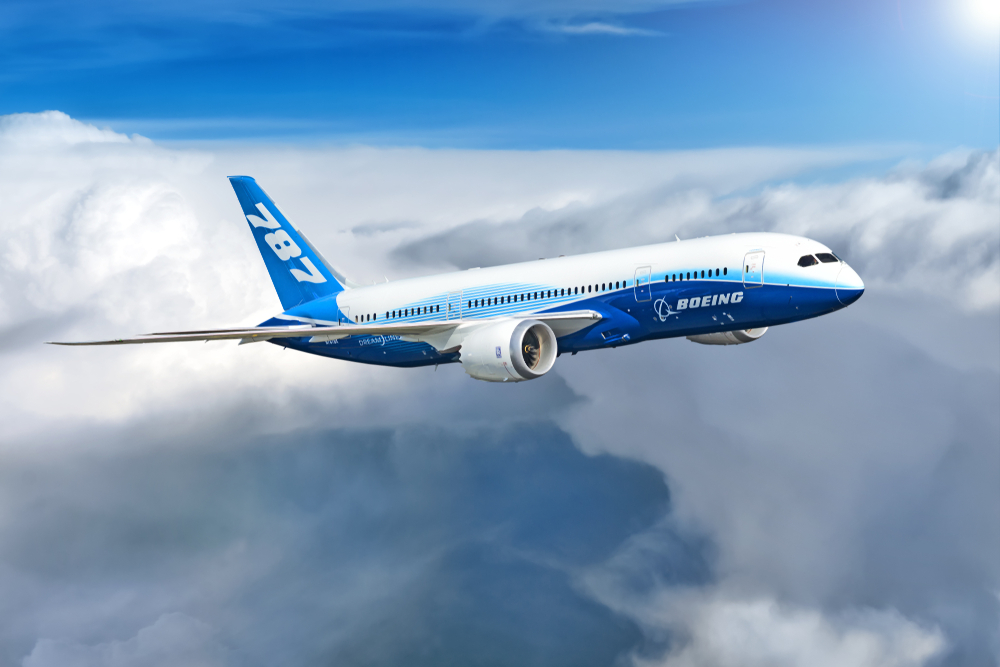
Ongoing competition
The Boeing head said the region has placed orders for 1,570 of its various widebody planes, as nations expand their international networks, adding that these deliveries are the highest proportion of large planes for any region at 44%.
However, observers say the Dreamliner will face stiff competition from newer rivals such as Airbus’ capable single-aisle jet the A321neo.
Saudia has operated every Boeing commercial model, including 33 777 planes and 18 787 Dreamliners, with three more on order.
Heisey said: “Fleet expansion will boost tourism and its allied sectors, generate substantial employment opportunities, significantly improve air connectivity and enhance the flow of foreign investments. We at Boeing are already on the path of aligning with Vision 2030, especially in the area of promoting local industry.”
Boeing seems to have a hand in all areas of the aviation market and declares itself ready to ride air travel’s recovery, whatever form that takes.



